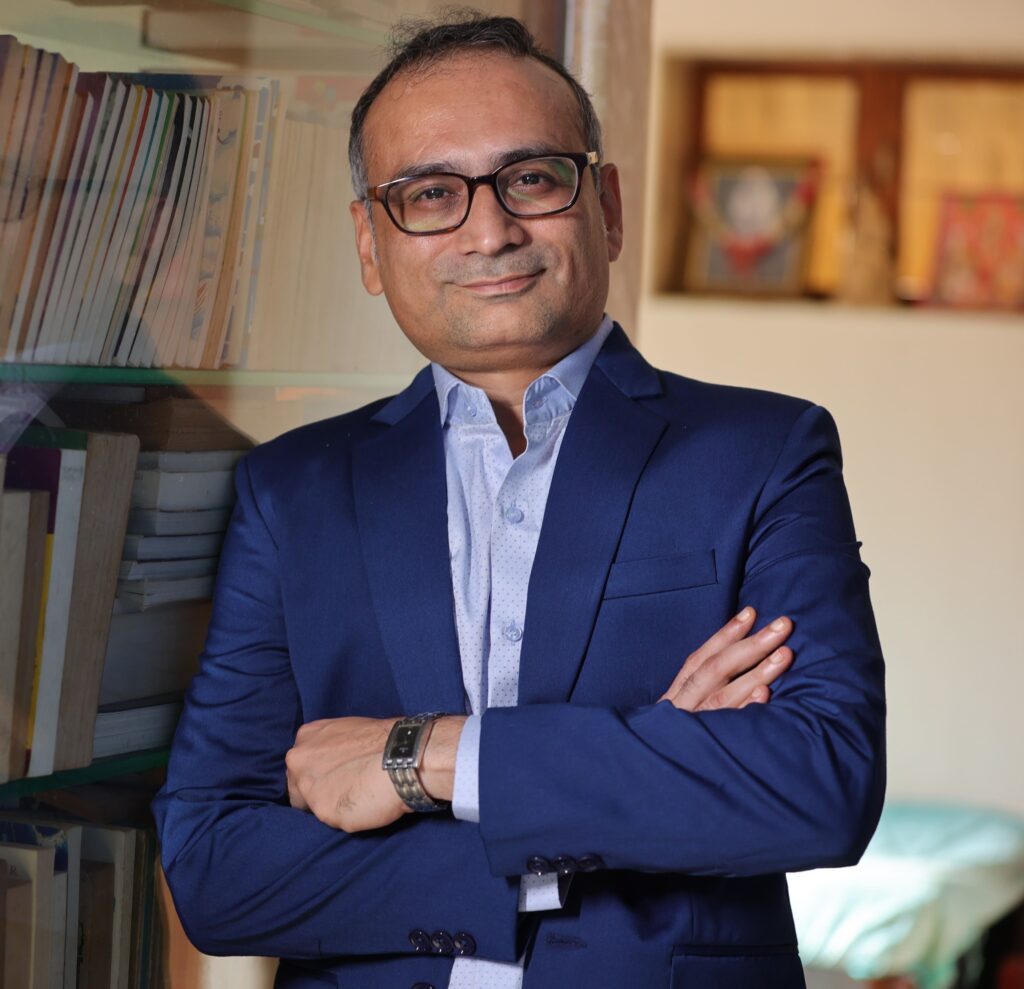Authored by: Malay Chitalia
Inspiration: Mr. R. Gopinath
“Financial Planning for Child’s Education?”
“Well, I don’t need that. Whenever I have spare money, I put it into Mutual Funds !”
“What? Retirement Plan?”
“I don’t think I need a Retirement Plan; I have invested in a few flats/shops. If needed, I will sell them & encash the money.”
Generally, people have their philosophy to avoid initiating systematic financial planning for their financial goals of life. Some people do make provisions for their future needs but they heavily rely on their instincts.
Such an unscientific approach can cost them a painful future. There are chances that they may escape from the consequences. But in today’s time, when Economics & Financial Planning has made so much progress, one should not take this chance.
In earlier times, when there was no vaccine for Polio, not necessarily every child was a victim of Polio. But when vaccines got invented, people started giving it to their children, and today, we are almost polio-free.
We must have a robust Financial Plan for our goals which are most important for us & our dear ones.
My mentor says;
“Cash is the King, and Assets are intermediaries!”
– R. Gopinath

Suppose an employee of a reputed company kept all his savings in Mutual Funds. He receives a Mutual Fund statement every month. When he needs some money for buying a house, he will require the hard cash (money) in his bank account. Just a statement reflecting the number of units & virtual wealth will not be useful. One thing is very clear from this example that Cash is the King and the Assets which carry them, work as the intermediaries.
We must invest our hard-earned money so wisely that it becomes useful when we need it the most. Often people make the mistake while selecting the type of instrument for the various financial goals. Generally, people get carried away by the “RETURNS” it offers.

I would like to throw some light on how to make a wise decision while investing in the most important goals of our lives.
Debt Instruments
These instruments include Life Insurance Saving Plans, Public Provident Fund, Post Office Schemes, Govt. Bonds & Fixed Deposits.
These instruments play a very important role in our financial planning. They offer complete security of capital along with decent returns. It also increases our holding capacity.
For the financial goals which are Time-bound in nature, we should invest our money into Debt instruments only. For any type of goal (whether it is Time-bound or Non-Time-Bound), we should start investing in Debt Instruments up to the extent of the Non-Negotiable amount.

Let us understand these two terms “Time-bound Goals” & “Non-Negotiable Amount” in detail. They are very important for our Financial Planning.
Time-bound Financial Goals:
Some goals are Time-bound for which we require a big sum of money precisely at the same point in time. Child Education Planning is a classic example of a Time-bound Goal. When a child turns 21, he/she is bound to require a Higher Education Fund. The fund must be available exactly when the child turns 21. And these Debt instruments are the right products that promise to provide the fund exactly at the time we need it the most. For such Time-bound goals, we cannot rely on market-linked instruments like Mutual Funds or Direct Equities as there are chances that the market is recessive then and we may not get the full value of the required amount. There are chances that even we don’t get our capital back.

Similarly, investing in Real Estate for the Time-bound goal is an unscientific idea.
Example: Mr. Vishal Shah is a small-scale businessman. He invested a good amount of money from his wealth into Real Estate (maybe into a flat or a shop) keeping in mind it will easily fetch Rs.1 Crore when his 3 years old child turns 21. A child’s Higher Education is the most important financial goal for any parent. But unfortunately, Mr. Vishal is not there in this world now. Will his wife be able to sell this property at exactly Rs.1 Crore when his son needs these monies very badly? No man wants to imagine his wife in this situation.
Selling a property within the time frame is very difficult. Distress selling might fetch a lower price for valuable property. Selling a property & converting it into liquid cash is not an easy task.
What if, Mr. Vishal could have initiated a LIC policy with a maturity value of Rs.1 Crore? Life Insurance based saving plans are good debt instruments to plan for Child’s Education.

Debt Instruments offer the following benefits:
1. Complete Security of Capital
2. Appreciation in the value of assets at a decent rate
3. Price is prefixed (Maturity Value is almost fixed)
4. Sale Price of the asset does not depend on the qualification of the buyer or seller
(Beneficiary gets the same value for his asset when he/she needs it, irrespective of his qualification.)
(Here, Sale Price mean the Maturity Value of the policy or Death Claim amount under the policy.)
Apart from Education Planning, one more example of a Time-bound Goal is Retirement Planning. I have seen many people investing heavily in Mutual Funds, Direct Equity, or Real Estate. This is again very unscientific.
The USA Govt. was promoting 401K instruments for the Retirement of its citizens. As a result, the majority of the citizens had invested heavily into this instrument, almost 90 to 95% of their life-earning was lying into 401K. The 401K is a market-linked instrument, just like NPS in India.
In 2008, the Share market crashed heavily. Almost all 401K holders lost their total wealth (capital + appreciated value). The people who were going to retire 6 months or 12 months down the line, had no clue how to survive now and how their future will be. They made statements that they will not be able to even think of Retirement at least for the next 5 years. People nearing retirement have been filmed crying in front of cameras anticipating their fearful future.
From the above example, we can understand that the funds for any Time-bound Goals must be sourced through Debt Instruments only.

Non-Negotiable Amount:
This amount refers to the bare minimum amount we require to satisfy our most important financial goal.
Example: Mr. Vishal Shah wants his child to learn at MIT University where the Tuition fees for 2 years course amount to Rs.1.40 Crores. Currently, MIT University is the No.1 University in the world. We can call this goal an Aspiration Goal. This will be the dream of any parent. However, in case, Mr. Vishal is not able to shell out this much of an amount, he would want his child to study in the top university of India. Suppose, cost of learning in the top university in India is approx Rs.50 Lakhs, then we can call this amount a Non-Negotiable amount for Child Education Planning. This amount must be sourced through debt instruments, preferably Life Insurance based Saving Plans. I am writing this with conviction and I can provide scientific reasons in support of this recommendation.
I am not against Mutual Funds, Direct Equity, or Real Estate. They are good instruments if they are bought based on a scientific approach. I believe that Financial Planning is incomplete without having Mutual Funds or Equities in our portfolio. However, when we are planning for the most important financial goals of our life, we should not take any chance.

We must have a robust plan for our Financial Planning. The Financial Plan can stand tall against all the odds & uncertainties of life.













